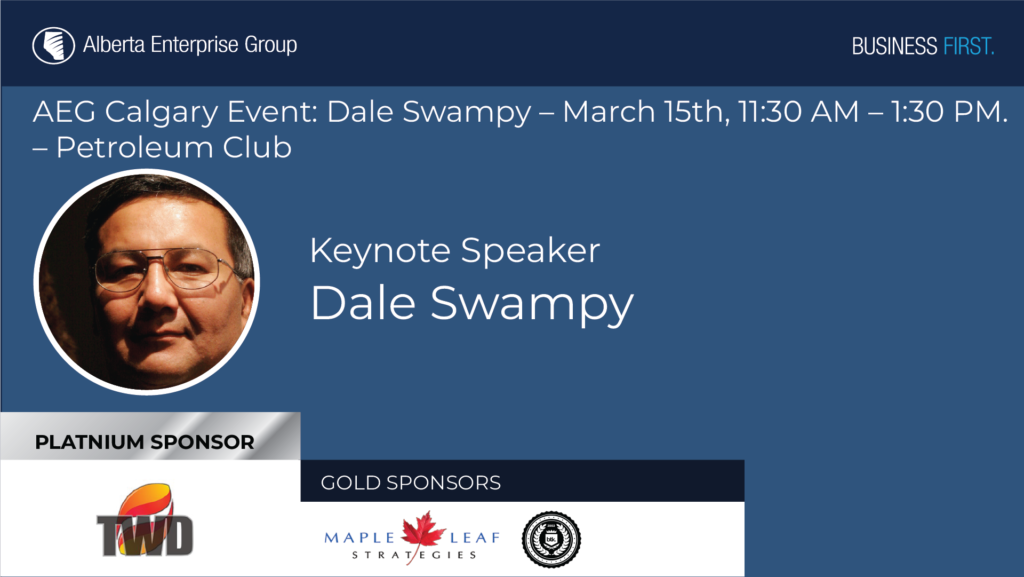Craig Senyk, keynote speaker, discussed the importance of culture in an investment firm at an event. He recounted a story of a Canadian-based firm that had a problem due to the gap between the junior and senior partners. This led to the founding partners claiming a larger share of the ownership for taking the early risk, while the younger partners felt they were bringing in most of the new business and should be rewarded accordingly. The battle for ownership had been going on for two years, with no progress.
Mark Plamondon’s Bio Mark Plamondon is Executive Director of Alberta’s Industrial Heartland Association. Mark has over 22 years of experience in management, operations, business development, and financial analysis of mineral and refining operations. He has extensive international experience and works to enhance Heartland’s brand across the globe with investors, governments, and stakeholders. Prior to taking […]
Cory Janssen gave a keynote speech that aimed to clarify the hype and reality of AI for businesses. He explained that AI is an umbrella term for a variety of subcategories, such as machine learning, deep learning, reinforcement learning, computer vision, and natural language processing. He emphasized that AI cannot think and is simply making predictions on a specific area. Janssen provided examples of real-life ML use cases that his company has done in Alberta, including using computer vision to predict corrosion on insulation in a plant, developing an algorithm for touchless claims in insurance, and using natural language processing to optimize procurement processes for a large energy company. Janssen also talked about his company’s venture studio, which includes a new legal research company called Jurisage that uses machine learning to categorize every case in Canada to optimize the legal research process. Finally, Janssen addressed the issue of data quality control, explaining that while some data in legal cases is reliable, it’s important to ensure the underlying data for other clients is reliable before using it for ML.
Dale Swampy discusses the challenges that communities face in addressing poverty, including the need for employment opportunities and community involvement. He shares a personal story about his sister, who moved back to the reserve and started a program to provide food and other necessities to community members in need. The post highlights the importance of a comprehensive approach to addressing poverty, including employment opportunities, education, and community involvement, rather than relying solely on government programs. Dale also emphasizes the need for self-reflection and taking responsibility for addressing the issue, rather than blaming external factors.
Highlights The Honorable Danielle Smith, Premier of Alberta, spoke at a meeting of the Alberta Enterprise Group about the importance of striking a balance between free enterprise, individual freedom, and government intervention. She praised the group’s work in helping Alberta recover from economic turmoil and thanked them for their dedication to supporting growth in the […]
Dr. Jack Mintz gave a speech about federal-provincial relations and the role of the West in Canada. Western Canada is a large economic power but has weak political power. Dr. Mintz suggests that Alberta should consider more provincial autonomy to control its own life and create its own opportunities, and control its economic powers as well. He also discussed the need for a just transition for Alberta’s oil and gas sector, and the importance of affordability in energy policies. Dr. Mintz also touched on other topics such as the high tax rates in Canada, the need for more police forces, and the healthcare system. He suggests that the UCP and the NDP both agree on the need for developing more clinics and that they should be well-operated, and that the goal should be to move more things out to clinics. Dr. Jack Mintz believes that the centralization of power is occurring everywhere in government, and the only way to protect the interests of the provinces is through provincial leaders and governments. He also thinks that climate policies will take a long time to adopt and that the public is not ready for it. He comments on inflation, saying that Canada’s inflation is not as outlandish compared to other countries but is reckless with the checkbook. He believes that Canada’s indebtedness is much bigger than the official numbers suggest and that the country needs more national savings to fund future commitments.
In this discussion, a panel of experts explored the topic of the future of the energy industry in Canada, with a focus on sustainability and the transition to a low-carbon economy. The panelists shared their thoughts on various aspects of the industry, including the importance of partnerships, the need for comprehensive data, and the role […]
Ian Murray is the Owner, President, and General Counsel of IMC (Ian Murray & Company Ltd.). IMC is aSpecial Situation consulting company that focuses on challenges and opportunities that are outside of aclient’s core activities and involve new projects, products, markets, and technologies, as well asrestructurings and transformational challenges. Ian’s expertise and experience relates to […]
The Queen Elizabeth II Platinum Jubilee Medal Award Ceremony given to individuals who have made significant contributions to their community, country, or the Commonwealth, and reflects the Queen’s appreciation for their dedication and service Our winners: Previous Next Photos from the event:











